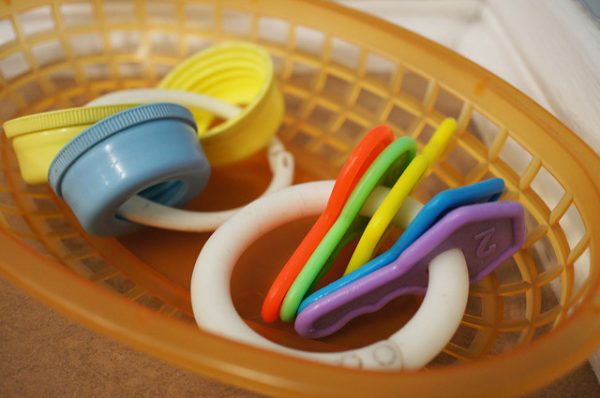Do You Need a Salary’s Worth of Savings Before Having Kids?

Photo credit: Christina Kessler, CC BY 2.0.
Today in “everything is unaffordable,” CNBC lets us know how much money we should set aside before having kids:
By age 30, a good rule of thumb is to aim to have the equivalent of your annual salary put away, Kimmie Greene, money expert at Intuit and spokeswoman for Mint.com, tells CNBC Make It.
I’m not sure whether Greene is implying that you shouldn’t have kids until your 30s, or whether she’s simply stating how much money you should have in the bank account at age 30—but since CNBC’s headline is “Here’s how much money you should have saved before having kids,” I’m going to assume that there is at least some implication going on.
CNBC claims you can achieve this milestone—the savings one, not the kids one—by spending your 20s setting aside 25 percent of your gross pay and distributing it between retirement and savings accounts. You can count your company 401(k) match as part of the 25 percent if you want to make it easier. You can even count the money you’re putting towards student loans as part of the 25 percent.
Now I get to do the math and see if that actually gives you an annual salary’s worth of savings by age 30!
![]()
Let’s assume that our hypothetical person gets their first full-time, salaried job at age 22 (which isn’t always what happens) and works steadily until age 30.
Let’s also assume that this person starts with a $34,000 salary and receives a 5 percent raise each year (which isn’t always what happens).
Let’s assume that this person contributes 8 percent of their pretax income to a 401(k) and gets an 8 percent company match.
Let’s also assume this person has no student loans, just because I want to give them the best money-saving scenario possible.
So, following the “save 25 percent including retirement and company match” rules, this person needs to put 9 percent of their income in a savings account.
Here’s how much goes in that account each year:
22 years old: Earns $34,000, saves $3,060.
23 years old: Earns $35,700, saves $3,213.
24 years old: Earns $37,485, saves $3,373.65.
25 years old: Earns $39,359.25, saves $3,542.33.
26 years old: Earns $41,327.21, saves $3,719.45.
27 years old: Earns $43,393.57, saves $3,905.42.
28 years old: Earns $45,563.25, saves $4,100.69.
29 years old: Earns $47,841.41, saves $4,305.73.
Total saved by 30th birthday: $29,220.27.
Guess that means no kids.
Now, I know we can tweak the numbers around a little; maybe our hypothetical person saves more and invests less, or maybe they change jobs and get a salary boost. Maybe that ambiguous statement about having an annual salary’s worth of income saved by age 30 includes the money in the 401(k), although that doesn’t make sense in terms of “having a large pile of savings that you’re going to use to cover the cost of raising a child.”
But this is still a best-case scenario: annual raises, company match, no debt, no layoffs, no expenses that would require this person to dip into savings. (No homebuying, no health issues, no rents that are too damn high. No weddings. No small businesses.)
Add a second person, and I’m assuming you’re supposed to have two annual salaries saved before having kids—but really I’m making a lot of assumptions about this CNBC article. What do you think about CNBC’s advice?
Also, did any Billfolders have their annual salary saved by the time they turned 30?
Support The Billfold
The Billfold continues to exist thanks to support from our readers. Help us continue to do our work by making a monthly pledge on Patreon or a one-time-only contribution through PayPal.
Comments